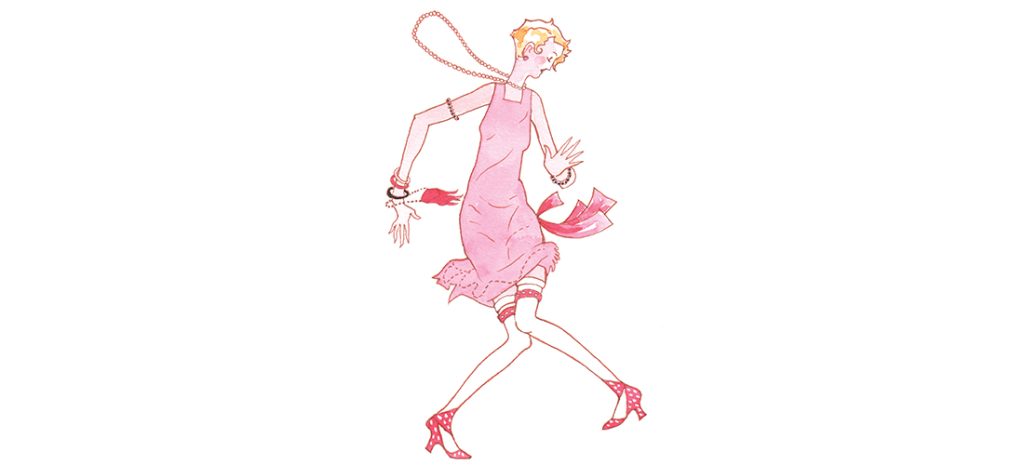O.Henry Ending

Good Grief
An aunt’s legacy of funeralizing lives on
By Cynthia Adams
On the occasion of my Great Aunt Fola’s death, we funeralized.
This was a term coined by her maid, Ella. Funeralizing, according to Ella, meant cooking and baking (in anticipation of drop-ins, primarily family, friends and neighbors who would come by in order to pay their respects). This required being sure there was cold chicken, iced tea and pound cake for anyone who stopped by before or after the formal service. (Funeralizing, she would explain, always makes you hungry.)
It meant earmarking ample time for the first public phase of grief — reminiscing, remembering and mourning the dead with all of those drop-ins. Which required, too, being sure your best (black, navy or gray) funeral clothes were cleaned and prepared, and the home was readied “to receive.”
And, of course, funeralizing included wearing your bravest face at the wake, plus standing at the funeral home in the “receiving line” with the family as mourners wept and made the loss their own.
We funeralized first when Ella died, and we followed suit with Fola.
Fola McClellan Williams, born in 1904, was the youngest child in a Scotch-Irish family in Union County. Her sisters became homemakers. Her brothers, businessmen. But Fola, with strawberry blonde hair and bright blue eyes, was a child of the modern age. She was a Flapper.
Fola dressed and danced prettily. She was the first woman in Monroe to drive a car. She deliberately married late and was childless. Fola shunned health fads and cooked “with seasonings,” a term for the liberal use of fatback and salt in a pot of greens or beans.
She became a buyer for Belk at the original Monroe department store. Fola took the train to New York City for buying trips, with hat and gloves — plus a tiny salt shaker tucked into an alligator purse. Unconstrained by traditional housewifery, thanks to Ella, she became president of the Business and Professional Women’s Club, and traveled.
Fola was a consummate lady, but cussed under her breath if the occasion demanded. It was her lifelong habit to enjoy a happy hour, and neighbors and friends often joined her. Upon her death, Fola relegated her worldly goods to the women in the family. Among other things, I inherited her souvenir shot glasses (including one depicting the World Trade Center, and another which looks like a thimble, engraved with “Just a Thimble Full”).
At her funeral, no less than John Belk, son of Belk founder William Henry Belk, was one of five men to eulogize her. Fola’s elderly Baptist minister dramatically cleared his throat before describing her as “a feminist.” He entreated God to overlook this aspect of an otherwise God-fearing woman, pointing out that “she wasn’t obnoxious about it.”
As the minister helpfully warned God, “Watch out for Fola in Heaven, for she has her own ideas about things,” one of my sisters grabbed my kneecap and hissed. Our mother refused to look at us, keeping her eyes fixed upon a spray of pink flowers.
The rheumy-eyed minister had been partly right. Fola was a woman who had her own ideas. She volunteered for good causes, was a town booster and was unapologetically progressive.
The speakers at her funeral were also right. Our aunt was an anomaly:
Fola resided in her home town till death.
She didn’t think somewhere else was better than where she was — small-town, North Carolina.
She collected a gold pin from the company where she began her career 50 years earlier.
She remained with the man she finally chose to marry.
When things went wrong, Fola didn’t think it was up to somebody else to fix things; instead, she figured she was somebody, and did something.
After the eulogizing, my sisters and I accepted the tone-deaf minister’s sympathies. Although I later cussed under my breath like Fola might have done, I still murmured courteous thanks to him on the church steps.
This was funeralizing, after all. Fola would have insisted upon nothing less. OH
